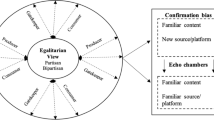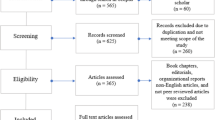Abstract
This article approaches the subject of the global recognition of the term ‘Normative Power Europe’ in external energy governance by engaging with the concept of strategic narratives. The article considers reactions to the European Union (EU) as a normative energy actor within a tripartite scheme of strategic narrative formation, projection and reception. The definition of a narrative suggests the presence of an actor, an action, a goal or intention, a scene and instrument. Those were identified for the emerging ‘Sustainable Energy Europe’ narrative and tested in one empirical case study: Twitter communications surrounding the EU Sustainable Energy Week 2013. In its method, our analysis is among the first to explore empirically the EU’s social media communication efforts. Answering a call for richer methodologies, which view social media data not as ‘quantitative data, rather qualitative data on a quantitative scale’, our analysis uses an original methodology and codes the Twitter data using a nuanced qualitative framework.







Similar content being viewed by others
Notes
Tweets were gathered using software developed and operated by Professor Mike Thelwall of the Cybermetrics Group at Wolverhampton University, to whom this project is indebted. Details of the Cybermetrics Group can be found at: cybermetrics.wlv.ac.uk/index.html. The project conformed with the University of Leicester Ethics Committee Regulations on data protection and privacy, and received approval before data gathering was undertaken. The project leaders also wish to express their sincere thanks to the three Twitter coders: Jasmin Lenz, Simon Lindmayer and Dorethea Stampfer, Technischen Universität Darmstadt post-graduate students.
For example, NGOs refers to WWF and two other country-specific NGOs; BRICS refers to several mentions of Russia, a couple of South Africa and a handful of China. India and Brazil were not visible; EU MS actors could mean the whole MS, in which case Germany was most visible, or representatives of those MS, like the city council of Barcelona.
References
Badouard, R. and Monnoyer-Smith, L. (2013) Hyperlinks as political resources: The European commission confronted with online activism. Policy & Internet 5(1): 101–117.
Beetham, D. and Lord, C. (1998) Legitimacy and the European Union. Essex, UK: Addison Wesley Longman.
Bellamy, R. and Weale, A. (2015) Political legitimacy and European monetary union: Contracts, constitutionalism and the normative logic of two-level games. Journal of European Public Policy 22(2): 257–274.
Björkdahl, A., Chaban, N., Leslie, J. and Masselot, A. (eds.) (2015) Importing EU norms? Conceptual Framework and Empirical Findings. Cham, Switzerland; Heidelberg, Germany; New York; Dordrecht, The Netherlands; London: Springer.
Boyd, D., Golder, S. and Lotan, G. (2010) Tweet, tweet, retweet: Conversational aspects of retweeting on twitter, 43rd Hawaii International Conference on System Sciences, 1–10.
Bruns, A. and Stieglitz, S. (2013) Towards more systematic twitter analysis: Metrics for tweeting activities. International Journal of Social Research Methodology 16(2): 91–108.
Burton, C. (2005) Challenges Facing the EU Institutions in Dealing with an Extended Press Network. Journal of Communication Management 9(3): 215–22.
Castells, M. (2009) Communication Power. Oxford: Oxford University Press.
Dendrinou, V. (2014) Pew Survey Shows Public Support for EU Rebounding, Wall Street Journal, http://www.wsj.com/articles/SB10001424052702303851804579557933471011394, accessed 17 March 2016.
D’Orazio, F. (2013) The future of social media research: or how to re-invent social media listening in 10 steps, Pulsar Social Data Intelligence Blog, http://www.pulsarplatform.com/blog/2013/the-future-of-social-media-research-or-how-to-re-invent-social-media-listening-in-10-steps/, accessed 16 March 2016.
Entman, R. (2003) Projections of Power: Framing News, Public Opinion, and U.S. Foreign Policy. Chicago, IL: University of Chicago Press.
Erikesen, E. and Fossum, J. (2004) Europe in Search of its Legitimacy: Strategies of Legitimation Assessed. International Political Science Review 25(4): 435–459.
European Commission (2007) Plan D for democracy, dialogue and debate, http://europa.eu/legislation_summaries/institutional_affairs/decisionmaking_process/a30000_en.htm, accessed 30 November 2014.
European Commission (2013) EU sustainable energy week 2013: FAQ and main features, http://europa.eu/rapid/press-release_MEMO-13-596_en.htm, accessed 29 September 2013.
Koskinen, K. (2013) Social media and the institutional illusions of EU communication. International Journal of Applied Linguistics 23(1): 80–92.
Laffan, B. (1997) From policy entrepreneur to policy manager: The challenge facing the European commission. Journal of European Public Policy 4(3): 422–438.
Longo, M. and Murray, P. (2011) No ode to joy? Reflections on the European Union’s legitimacy. International Politics 48(6): 667–690.
Lord, C. (2000) Legitimacy, Democracy and the EU: When Abstract Questions Become Practical Policy Problems, Economic and Social Research Council Policy Paper 03/00, http://jamal.shahin.org/pdf/tceu/lord2000.pdf.
Macartney, H. (2013) The Debt Crisis and European Democratic Legitimacy. Basingstoke, UK: Palgrave Macmillan.
Manners, I. (2002) Normative power Europe: A contradiction in terms? JCMS: Journal of Common Market Studies 40(2): 235–258.
Meyer, C. (1999) Political Legitimacy and the Invisibility of Politics: Exploring the European Union's Communication Deficit. JCMS: Journal of Common Market Studies 37: 617–639.
Miskimmon, A., O’Loughlin, B. and Roselle, L. (2013) Strategic Narratives, Communication Power and the New World Order. New York: Routledge.
Nye, Jr J. S. (2013) Transcript of witness testimony to the House of Lords Select Committee on Soft Power and UK Influence, 15 October. http://www.parliament.uk/documents/lords-committees/soft-power-uk-influence/uc151013Ev10.pdf, accessed 26 November 2013.
Roselle, L., Miskimmon, A. and O’Loughlin, B. (2014) Strategic narrative: A new means to understand soft power. Media, War & Conflict 7(1): 70–84.
Slaughter, A.-M. (2011) Preface. In: W. Porter and M. Mykleby (eds.) A National Strategic Narrative. Washington DC: Woodrow Wilson International Centre for Scholars, pp. 2–4.
Thelwall, M., Buckley, K. and Paltoglou, G. (2011) Sentiment in twitter events. Journal of the American Society for Information Science 62(2): 406–418.
Traynor, I. (2014) 30 000 lobbyists and counting: Is Brussels under corporate sway? The Guardian, http://www.theguardian.com/world/2014/may/08/lobbyists-european-parliament-brussels-corporate, accessed 30 November 2014.
Van Noije, L. (2010) The European paradox: A communication deficit as long as European integration steals the headlines. European Journal of Communication 25(3): 259–272.
Verdun, A. (2013) Small states and the global economic crisis: An assessment. European Political Science 12(1): 276–293.
Verdun, A. and Christiansen, T. (2000) Policy-making, institution-building and European monetary union: Dilemmas of legitimacy. In: C. Crouch (ed.) After the Euro: Shaping Institutions for Governance in the Wake of European Monetary Union. Oxford: Oxford University Press, pp. 162–178.
Vergeer, M., Hermans, L. and Sams, S. (2010) The voter is only a tweet away micro blogging during the 2009 European parliament election campaign in The Netherlands, 3rd Annual Political Networks Conference, Durham, NC, Duke University.
de Vreese, C. H. (2002) Framing Europe: Television news and European integration. Amsterdam: Aksant Academic Publishers.
Vis, F. (2013) Twitter as a reporting tool for breaking news. Digital Journalism 1(1): 27–47.
Acknowledgements
The research funded reported in this article is part of a larger project – a Jean Monnet Multilateral Research Group (with Natalia Chaban of the University of Canterbury in the lead, and as partners Michèle Knodt of the Technische Universität Darmstadt and Amy Verdun of the University of Victoria). Project title: ‘External Images of the EU’ (EXIE). The group is grateful for financial support from the European Commission during the 2-year project 2012–2014. EXIE came together three times for training purposes and for coordinating the research. An earlier version of this article was presented at the third workshop held at the University of Pretoria 22–26 April 2014, the ISA Convention in New Orleans 18–21 February 2015, New Zealand EU Centres Network International Symposium ‘Strategic Narratives of Identity’ 27 February 2015 at University of Canterbury, NZ, and prepared for delivery at the EISA Conference 23–26 September 2015. The authors thank the Technische Universität Darmstadt postgraduate students who undertook the coding for this article, as well as the participants of the EXIE workshop, the guest editors of this special issue, and the two anonymous reviewers of the journal, for constructive criticism and suggestions on the earlier drafts.
Author information
Authors and Affiliations
Corresponding author
Rights and permissions
About this article
Cite this article
Bain, J., Chaban, N. An emerging EU strategic narrative? Twitter communication during the EU’s sustainable energy week. Comp Eur Polit 15, 135–155 (2017). https://doi.org/10.1057/cep.2016.17
Published:
Issue Date:
DOI: https://doi.org/10.1057/cep.2016.17




